Endothermic Reactions
An endothermic reaction is a chemical reaction that absorbs heat from its surroundings. This means that the temperature of the surroundings decreases during the reaction as it takes in heat energy. Endothermic reactions are characterized by a decrease in temperature, a positive change in enthalpy, and a cooling sensation.
Key Concepts
- Endothermic reactions absorb heat from their surroundings.
- These reactions result in a decrease in temperature in the surrounding environment.
- The change in enthalpy (ΔH) for an endothermic reaction is positive.
- Endothermic reactions often feel cool to the touch.
Examples of Endothermic Reactions
Some common examples of endothermic reactions include:
- Ice melting: The solid ice absorbs heat from its surroundings to become liquid water.
- Evaporation: The process of liquid water turning into water vapor requires the absorption of heat energy.
- Photosynthesis: This vital process in plants involves the absorption of sunlight to convert carbon dioxide and water into glucose and oxygen.
Study Guide
To understand endothermic reactions, it is important to grasp the following concepts:
- Heat Absorption: Endothermic reactions absorb heat from the surroundings, causing a decrease in temperature.
- Enthalpy Change: The change in enthalpy (ΔH) for an endothermic reaction is positive, indicating that energy is absorbed during the reaction.
- Examples: Familiarize yourself with examples of endothermic reactions, such as melting ice and photosynthesis, to understand how heat absorption occurs in these processes.
- Energy Diagrams: Study energy diagrams to visualize the energy changes in endothermic reactions, with the reactants at a lower energy level than the products.
By mastering these key points, you can develop a comprehensive understanding of endothermic reactions and their significance in the realm of chemistry.
.◂Science Worksheets and Study Guides Eighth Grade. Circulation and immunity
Study Guide Circulation and immunity
Circulation and immunity  Worksheet/Answer key
Worksheet/Answer key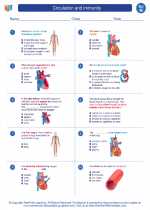 Circulation and immunity
Circulation and immunity  Worksheet/Answer key
Worksheet/Answer key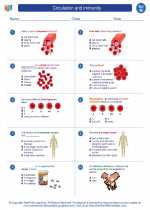 Circulation and immunity
Circulation and immunity  Worksheet/Answer key
Worksheet/Answer key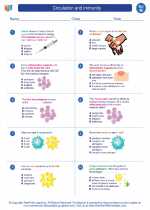 Circulation and immunity
Circulation and immunity  Vocabulary/Answer key
Vocabulary/Answer key Circulation and immunity
Circulation and immunity  Vocabulary/Answer key
Vocabulary/Answer key Circulation and immunity
Circulation and immunity  Vocabulary/Answer key
Vocabulary/Answer key Circulation and immunity
Circulation and immunity  Vocabulary/Answer key
Vocabulary/Answer key Circulation and immunity
Circulation and immunity  Vocabulary/Answer key
Vocabulary/Answer key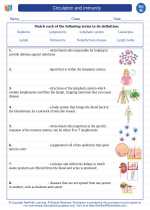 Circulation and immunity
Circulation and immunity  Vocabulary/Answer key
Vocabulary/Answer key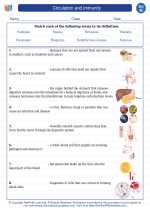 Circulation and immunity
Circulation and immunity  Vocabulary/Answer key
Vocabulary/Answer key Circulation and immunity
Circulation and immunity 

 Worksheet/Answer key
Worksheet/Answer key
 Worksheet/Answer key
Worksheet/Answer key
 Worksheet/Answer key
Worksheet/Answer key
 Vocabulary/Answer key
Vocabulary/Answer key
 Vocabulary/Answer key
Vocabulary/Answer key
 Vocabulary/Answer key
Vocabulary/Answer key
 Vocabulary/Answer key
Vocabulary/Answer key
 Vocabulary/Answer key
Vocabulary/Answer key
 Vocabulary/Answer key
Vocabulary/Answer key
 Vocabulary/Answer key
Vocabulary/Answer key
